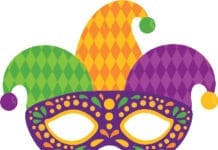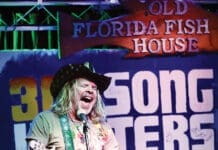It seems each generation abbreviates more and more. Responding to a text a message with the two letter word “OK” is simply not short enough. That is way too long! The latest trend is to just type “K.” I asked a young person why not just type “OK.” He said it was because OK stands for Oklahoma. So “OK” is not OK. Now that we’ve got that straight, where did “OK” come from (the word, not the state)? The word may have come from the very area I now call home; the Choctawhatchee Bay Area. In “All Mixed Up”, the legendary folk singer Pete Seeger sang that “OK” was of Choctaw origin, as the dictionaries of his time (Webster’s Dictionary, New Century Dictionary, and Funk & Wagnalls) tended to agree.
The earliest written evidence for this Choctaw inception is provided in writings by the Christian missionaries Cyrus Byington and Alfred Wright in 1825. These missionaries ended many sentences in their translation of the Bible with the particle “Okeh”, meaning “it is so,” which was listed as an alternative spelling in the 1913 Webster’s Dictionary. Saying “Okeh” was like saying “Amen.” This explanation sounds good to me, but not so with everyone. This explanation is definitely not OK for some folks from Boston.
Many of the good folks in New England believe that “OK” originated around Boston as part of a fad in the late 1830s. They say “OK” stands for “oll korrect [all correct]”. This origin was first described by linguist Allen Walker Read in the 1960s. He tracked the spread and evolution of the word in American newspapers and other written documents, and later throughout the rest of the world. He also documented the controversy surrounding OK and the history of its folk etymologies. According to Mr. Read, the abbreviation fad began in Boston in the summer of 1838. Newspapers used expressions like OFM, “Our First Men,” NG, “No Go,” GT, “Gone to Texas,” and SP, “Small Potatoes.” Supposedly, many of these abbreviated expressions were exaggerated misspellings by the humorists of the day, but can we really trust what we read from a man named Mr. Read?
According to historians who studied the OK Corral, “OK” had its origins in President Martin Van Buren’s 1839 campaign for reelection. Van Buren was supported by a political club in his home town of Old Kinderhook. The name “Old Kinderhook” was shortened to “O.K.” Van Buren’s supporters used the term for their candidate who they saw as “above average” or “outstanding”. OK was more than just OK. The abbreviation proved to be very popular for political slogans and campaign pins, although Van Buren lost the election.
In 1969, a psychiatrist named Dr. Thomas A. Harris wrote a book titled “I’m OK – You’re OK.” It was, and still is, one of the best selling self-help books of all time. It sold over 15 million copies, and remains in print today. I read it several years ago and thought, well, it’s OK. It would have been nice to hear someone say I’m great, but I guess OK is OK. I jest, but actually, the book was life changing for many. The theory of transactional analysis has helped many parents, adults and children understand their relationships with each other. Dr. Thomas encountered some people who would say to themselves: “I’m OK, but you are not.” Some people would say to themselves: “You’re OK, but I’m not OK.” He also dealt with others who would say to themselves: “You’re not OK, and I’m not OK.” None of These positions are OK.
We all know what people mean when they say we shouldn’t settle for OK. Even The Bible says God doesn’t like anything lukewarm. However, if we think back to the 1825 meaning of the word OK (it is so), it can bring a moment of peace, acceptance and serenity. By this very definition, I can tell you with great certainty, there is no need to fret. No matter what you are going through, everything is going to be OK!
Rick Moore is communications Pastor at Destiny Worship Center in Miramar Beach.
























































